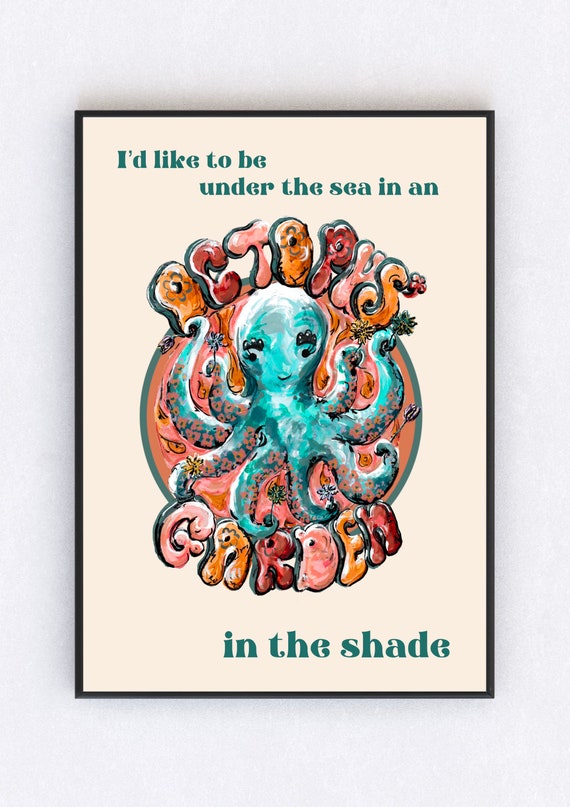
Posted on 09/29/2024 7:54:38 PM PDT by Red Badger
Octopus have a relatively large brain mass but it's divided up between nine sub-brains (actually just clumps of neurons). Each of the eight arms (not legs and not tentacles) has its own independent sub-brain. The eight "arm brains" make up 2/3rd of the total brain mass.
The central "brain" will send a command to an arm and then turn its attention to other matters while the arm performs the task independently. Like tell the arm, "pick up that clam shell," then while the arm is doing that, the main brain focuses on the stingray that looks like it might be trying to sneak up on it. And the arm will complete the task without any further input from the central brain.
The arms need all that brain power because not only do they act independently, it is the most flexible, most intricately-controllable limb in the animal kingdom. About a thousand times more intricate than an elephant's trunk (which also has not bones). Plus, the arm's suckers are incredibly powerful and complex sensory organs. They have a sense of touch that's dozens of times more sensitive than a human, plus the suckers can smell and taste. And a single arm can have upwards of 300 suckers. The octopus can run its arm down into a hole it can't see into in search of food, and by feeling around tell everything it needs to know about what it discovers, sight-unseen.
I've been on scuba dives with people who found a "playful" octopus that tolerated the diver's presence and even felt of them for some time. Back on the dive boat they're all giddy because the octopus was being friendly with them. I love the look on their face when I tell them, "No, it wasn't making friends, it was tasting you, to find out if you'd be worth killing and eating."
They also can shed an arm as a defensive measure and the discarded arm will continue wriggling to distract the predator. And the sacrificial arm grows back in two or three months.
They're far the most intelligent invertebrate. They can recognize and remember individual humans to the extent of "picking on" people they don't like. A researcher kept a captive octopus in his home and hung a bell over the tank and dropped the bell cord into the water. The octopus learned to use the bell to summon a companion when it wanted attention.
They display problem solving, tool use (but as yet haven't been observed making tools), planning for future eventualities, and they use deception as a hunting tactic.
Possibly the most amazing part is that most octopus only live about two years. The Giant Pacific octopus commonly will live four but most of the rest are only good for two.
So how do they get to be so smart so fast?
No, it IS NOT. We take "octopus" from the Greek "oktopus." Using the "I" ending to make plurals is a Latin thing. You don't use Latin's rules of pluralization to make plurals of a Greek noun.
:)
A typical octopus is smarter than a typical democrat voter.
They are self sufficient.
They can feed themselves.
They can build their own shelter.
And they’re far cooler too.
bttt
The single most astonishing thing I know about octopuses has to do with their changing color. They have chromatophores in their skin that contain the colors black, brown, orange, red and yellow. They can make their skin appear to be any of those colors, or any color that can be made from a combination of those colors. About the only color they can’t do is blue, but they have tricks to get around that limitation.
And they can change colors not only to camouflage themselves to hide in their environment, they’ll also change colors and patterns that mimic one predator in the hope of scaring off another predator of a different sort.
But that’s not the most astonishing bit. The most astonishing bit is ... octopus are completely colorblind.
Not “color-deficient,” color BLIND. They can see no color whatsoever. All they see is black, white, and shades of gray.
So how it is they even understand a need to change color, much less recognize what colors (plural) they need to change to to fit their purpose??????
I like that one.......... oh, and save the platipi!
All of this is totally new to me and I love it! What a GREAT thread. Again.
Sea Creatures - Joseph Blanchard
https://www.youtube.com/watch?v=UQZME_dpC_s
Being Greek and not Latin, the plural is octopodes.

There’s a Kamala joke in there somewhere
Wow. Amazing. Thanks!
“How do the colorblind octopus know the significance of these colors they change into?”
My guess is the colorblind octopus can feel the vibrations of specific colors and tones. They observe how the animals in their environment react to these particular changes under certain conditions, so they utilize the affect of those unexplained vibrations in ways to confuse, mask and deceive.I have heard blind people describe the feelings of certain colors. The heat or motion of such.

It was, until the people who knew any Latin at all gave up.
I bet he’s really pissed, too.
The definition of “invertebrate” is not an animal that lacks bones, but lacks a vertebral column. Sharks and rays have no bones and are vertebrates; their “bones” are skeletons of cartilage.

Actually, “octopus” is a word in Latin, albeit a loanword of sorts. Properly in Greek it would be “októpous” and thus the plural form would be “oktṓpodes” (which is the Latin plural); however, the Greeks called the animal “polypous”. The word “octopi” came from the problematic phenomenon of hypercorrection.
Disclaimer: Opinions posted on Free Republic are those of the individual posters and do not necessarily represent the opinion of Free Republic or its management. All materials posted herein are protected by copyright law and the exemption for fair use of copyrighted works.